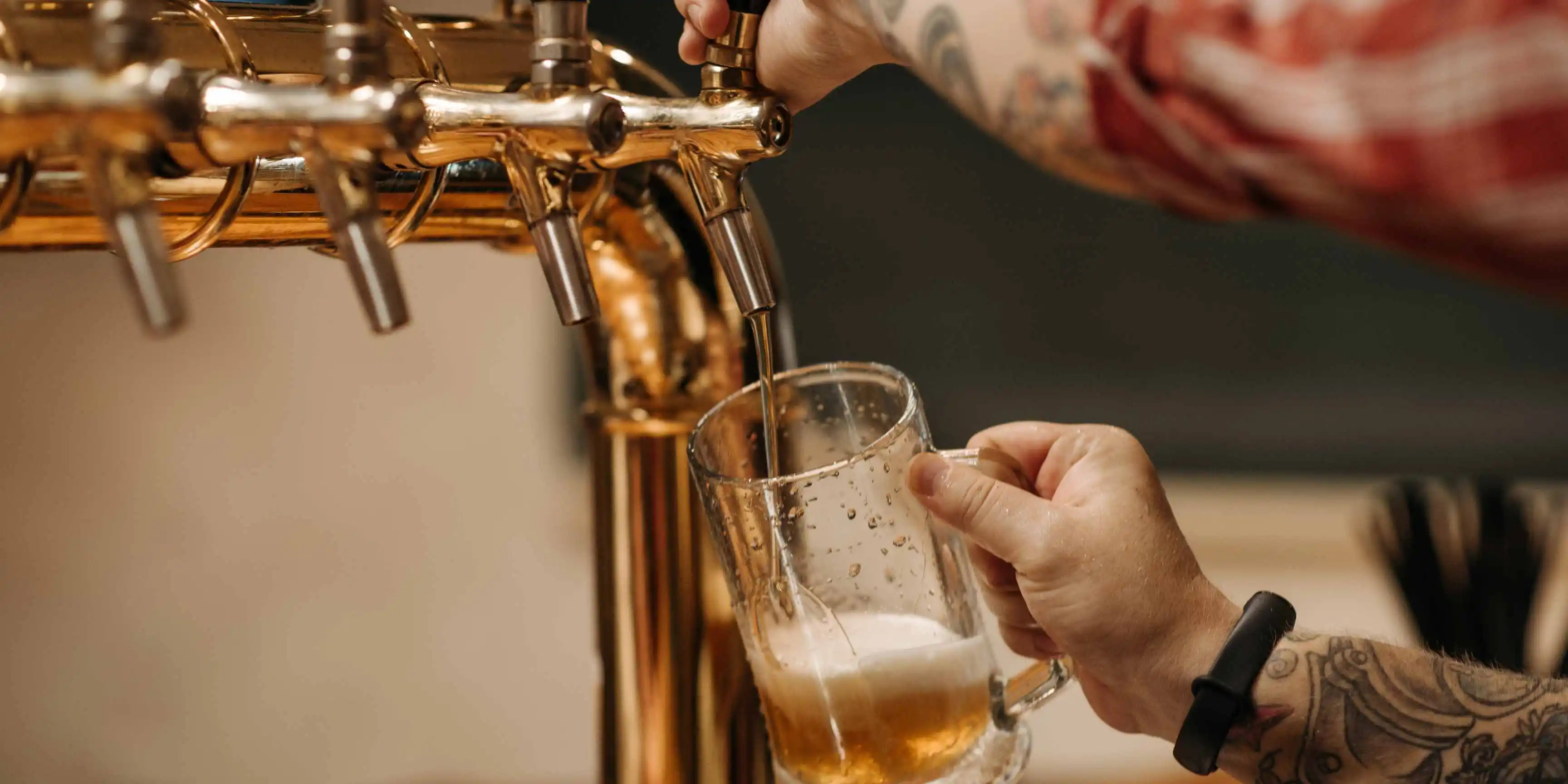
In response to growing concerns about public health and excessive alcohol consumption, the UK government has recently imposed new alcohol taxes with a unique focus: incentivising the consumption of low-alcohol drinks. These taxes aim to encourage a shift towards beverages with lower alcohol content, promoting healthier choices among consumers while also addressing issues related to alcohol-related harm. By implementing targeted taxation strategies, policymakers hope to foster a cultural change in drinking habits and support the development of a market for low-alcohol alternatives.
New legislation incentivises lower-ABV drinks by taxing them at a lower rate.
However, while these measures intend to create positive social impacts, their implementation can significantly impact small breweries and their production processes, posing both challenges and opportunities for the craft brewing industry.
This development in taxing aims to reflect modern drinking practices, with the uptake of people taking in part in Dry January or a 'damp' lifestyle.
The brewing industry has long been a vital contributor to local economies, fostering innovation and creating unique flavours loved by many. However, with the rise in alcohol consumption and concerns about public health, governments have increasingly turned to imposing alcohol taxes as a means of regulating consumption. While these measures aim to address public health concerns, the consequences of such taxes are often disproportionately felt by small breweries and their production processes.
Small breweries are likely to have to work to overcome adversity in the upcoming months.
In response to the market shift towards low-alcohol drinks, craft brewers can capitalise on this trend by developing and promoting a range of innovative, low-alcohol beer options. Embracing this trend can open doors to a broader customer base, including those who may have previously been deterred by high-alcohol content. Moreover, these low-alcohol offerings can act as an entry point for new customers to explore the world of craft beer, fostering greater appreciation and understanding of the artistry behind brewing.
Small breweries can utilise this opportunity to innovate and create new & exciting products, however this will not be an option for everyone.
While the tax measures create opportunities for innovation, not all small breweries may find it financially viable to embrace the shift towards low-alcohol production. Unlike large beer corporations that can absorb increased costs more easily, smaller breweries often operate on a smaller scale with limited resources. When alcohol taxes are increased, these businesses face the challenge of absorbing additional costs or passing them on to consumers, potentially impacting their competitiveness in the market. Some small breweries may find it challenging to invest in research, development, and production changes necessary for low-alcohol brews, hindering their ability to adapt to the new market dynamics.
For small breweries that find themselves struggling due to the impact of the new alcohol tax measures, securing a business loan can be a lifeline to maintain profitability and navigate the challenging market conditions. Business loans can provide the necessary financial infusion to absorb the additional costs associated with the increased taxes, allowing breweries to remain competitive without compromising on the quality of their products. Moreover, these loans can facilitate investment in research and development to create low-alcohol alternatives, enabling small breweries to adapt to changing consumer preferences and tap into new market opportunities.
With the support of a Love Finance business loan, struggling breweries can continue to innovate, enhance their marketing efforts, and explore collaborations, helping them regain their foothold in the industry.
Enquire about a business loan here. Our form is simple to fill out, and you can receive fast funding that will allow you to stay afloat amidst the challenges posed by the new tax measures.
As governments aim to balance public health concerns with the support for local businesses, it is essential to consider alternative approaches that can safeguard the vibrant and diverse landscape of the craft brewing industry. This may include targeted support programs, incentives for innovation, and finding a balance between taxation and the long-term growth of small breweries. By fostering a supportive environment and utilising funding opportunities, we can ensure the continued success of small breweries and the cultural richness they bring to the world of brewing.


